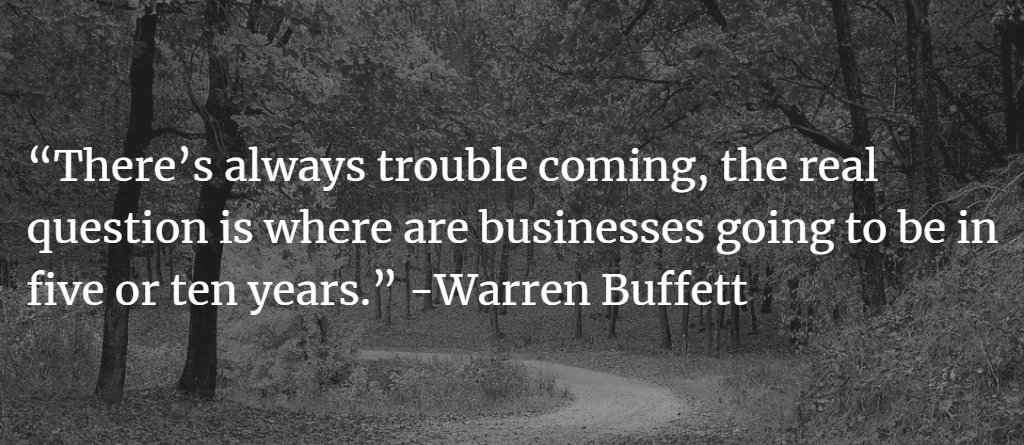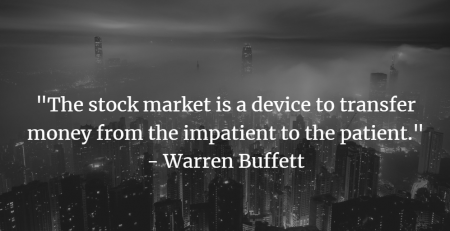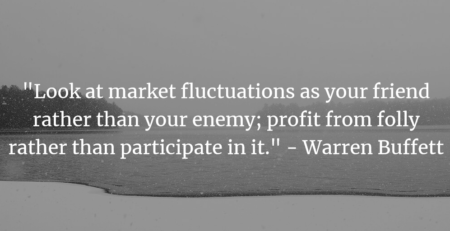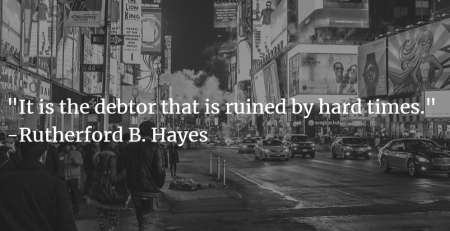Market Update: Coronavirus Edition
So far this year we have seen a 10% sell-off in equity markets. We should open by saying this is no cause for concern. You will recall that we noted in our last few letters that statistically speaking, we have been due for a 14% peak to trough sell-off for a while now. Many commentators and market participants have been looking for a reason to sell down stocks, and it seems like they’ve now finally been presented with an excuse in the recent Coronavirus outbreak.
Firstly, Coronavirus is creating serious human hardship and suffering around the world, disrupting many lives, and we by no means wish to diminish this. But our job as investors is to consider the effects of this outbreak on the companies we own – over periods of years, not months. And that is the context for today’s article.
Some background on what we know for sure: Coronavirus (COVID-19) had its origins in China, where its biggest impact has been in the Wuhan province but has affected other parts of China, as well as neighboring countries (notably South Korea) and extending even further with a large cluster of cases in Italy and Iran. The overall mortality rate is low (~3%) with the very young and very old being at most risk. The most recent news coming out of China is that new infections are falling, which if true would suggest the spread is being controlled.
That is what we know, which is unfortunately outweighed by a lot that we don’t know – namely if this will become a full-blown pandemic and how many people will ultimately be affected. This uncertainty might sound bad initially but it is actually what we live with every day. For example, since the great recession, the markets have been tested almost annually by some crisis of uncertainty or another – Elections, Greek Default, Brexit, Flash Crashes, Oil Crashes, Trade Wars, War Wars… And if we zoom out to the rest of recent history, it looks even worse; multiple World Wars, Pandemics, Cold Wars, Communism, Nuclear Annihilation, the list goes on.
Consider that the worst pandemic in modern history was the Spanish Flu in January 1918 (made worse by wartime censorship and medical resources not being available due to the fighting), it infected about 27% of the world population with a death toll possibly as high as 100 million. A little more than a year later, much of the world moved on, and the roaring 20s began.
A similar story with SARS in 2002, capturing the world’s attention, and then disappearing right before the mid-2000s real estate bubble went into overdrive. The point is that uncertainty is nothing new, and history would suggest that in about a year (or maybe even less) the Coronavirus outbreak will be in the rear-view mirror with the global economy bouncing back to what it normally does- growing about 3% per year as populations increase and human ingenuity continues to make us better at doing more with less. For further evidence, see Ebola, West Nile, MERS, Bird Flu, etc.
However, none of this sounds reassuring when markets are down 3% multiple days in a row, and the newsreels are alive with aggressive headlines. It is human nature to overreact to short term crises, and the market is more guilty of this than anyone. Our job is to take a step back, think long-term, and instead ask what this move means overall, and what investment opportunities might be being created.
Remember that the market itself does not provide any information about actual value- it only shows opinions- which are subject to emotions: fear and greed. Often greed, but right now fear. The market has over many, many years proved itself to be inept at valuing businesses in the short term (see any one of our articles discussing the Efficient Market Hypothesis for further information).
The reason is that far too many investors get caught up in the herd- they see stock prices falling and they panic to sell theirs at the worst possible time. Something’s just got a whole lot cheaper, so why would it make sense to sell it? That’s the opposite of financially rational. If we hold an asset that we like and it’s just got cheaper- we should buy more of it, not sell it. Think of this another way- if your neighbor sold their house for less than you think its worth, would you rush to sell yours too? No, you’d likely sit and wait for a better time to sell. In the stock market, people typically do the opposite.
So, what opportunities are being created? Much like with past virus outbreaks, travel stocks, in particular, are selling off heavily. We own Booking Holdings, a well-defended company with great economics that will benefit from a secular trend of increasing global travel for decades to come. As such, we have used this sell-off to add to the position. To be clear, we are not predicting how bad Coronavirus will get, or when travel-related stocks will bottom. Instead, we are doing what we always do, looking five to ten years out and making a projection on where earnings will be since in all likelihood the economic impact of Coronavirus will fade with time, just as it did for every other crisis before it.
Conclusion
Short-term market selloffs don’t determine our long-term compounded returns. What does is the earnings our holdings will produce over the next 5, 10, 20 years. To visualize that concept, please consider this great chart made by Michael Batnick at the irrelevant investor blog:

Since 2009, there have been countless crises splashed across the headlines that look horrible when measured in months. But when measured in years, none has disrupted the long term returns of stocks. As we have said before, this is what long-term investing is all about, taking advantage of the difference between short term sentiment shifts and long term business fundamentals.
As Warren Buffett often says, “Be fearful when others are greedy, and greedy when others are fearful.”
Disclosures: This website is for informational purposes only and does not constitute an offer to provide advisory or other services by Globescan in any jurisdiction in which such offer would be unlawful under the securities laws of such jurisdiction. The information contained on this website should not be construed as financial or investment advice on any subject matter and statements contained herein are the opinions of Globescan and are not to be construed as guarantees, warranties or predictions of future events, portfolio allocations, portfolio results, investment returns, or other outcomes. Viewers of this website should not assume that all recommendations will be profitable or that future investment and/or portfolio performance will be profitable or favorable. Globescan expressly disclaims all liability in respect to actions taken based on any or all of the information on this website.
There are links to third-party websites on the internet contained in this website. We provide these links because we believe these websites contain information that might be useful, interesting and or helpful to your professional activities. Globescan has no affiliation or agreement with any linked website. The fact that we provide links to these websites does not mean that we endorse the owner or operator of the respective website or any products or services offered through these sites. We cannot and do not review or endorse or approve the information in these websites, nor does Globescan warrant that a linked site will be free of computer viruses or other harmful code that can impact your computer or other web-access device. The linked sites are not under the control of Globescan, and we are not responsible for the contents of any linked site or any link contained in a linked site. By using this web site to search for or link to another site, you agree and understand that such use is at your own risk.






